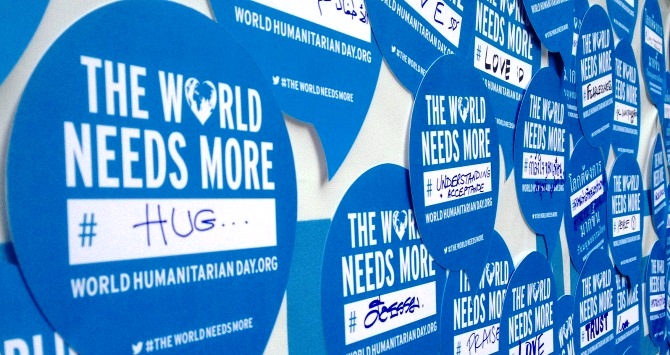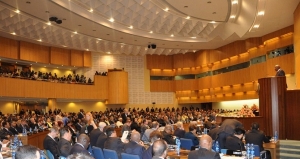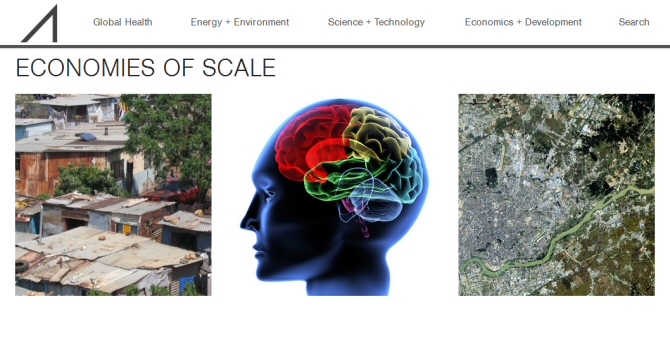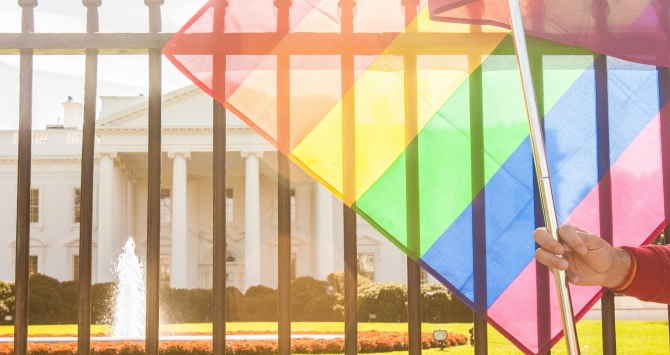This post on World Humanitarian Day from LSE Professor in Practice, Owen Barder, first appeared on Views from the Center.

This week we mark a poignant anniversary. August 19th was named World Humanitarian Day in memory of the bombing twelve years ago of the UN mission in Iraq, killing 22 people including the UN Special Representative, Sérgio Vieira de Mello.
World Humanitarian Day is of course an opportunity to celebrate the courage and professionalism of humanitarian workers and organisations. But it is also an opportunity to think about how the world can do this better.
The scale of the humanitarian task is growing. In 2014 nearly 60 million people around the world were displaced by conflict, including almost 12 million people who have been forced to flee their homes in Syria. Natural disasters affect more than 200 million people a year. The so-called “humanitarian system” – in reality, a loosely-organized web of governments, international agencies, and NGOs – does what it can with very limited resources, but the problems are outpacing the capacity of these organizations to deal with them.
For the individuals affected, and the communities around them, the challenges are immense. But the people affected are a tiny proportion of the world’s population. From a global perspective, the resources are relatively small: humanitarian aid is currently about $25 billion a year, less than a fifth of all overseas development assistance. As Mark Malloch Brown (a former head of both the UN Development Programme and its Refugee Agency) argued in a recent CGD Essay, improving the humanitarian response is among the more tractable of global challenges.
World Humanitarian Day is a good opportunity for us to reflect on how we can rise to this challenge, especially in the run up to the first World Humanitarian Summit which takes place in Istanbul in May next year.

Most of us have a pretty accurate picture in our heads of humanitarian aid: a convoy of trucks delivering food, water, shelter, clothes and medical help to people who have had to flee their homes because of earthquakes, floods or war. That is indeed the reality for most humanitarian aid. But in a small number of situations humanitarian aid is now being given as cash transfers, so that people can buy what they need for themselves.
I have the privilege of chairing the High Level Panel on Humanitarian Cash Transfers, looking at whether cash transfers could improve the humanitarian system. The Panel embodies a wealth of experience and expertise, from governments, international organisations, NGOs and the private sector. We will publish our conclusions next month to feed in to thinking for the World Humanitarian Summit.
A good starting point for our work is the acknowledgment that people are a good judge of what they need, and we should always think twice before putting our judgement ahead of theirs. (I myself became acutely aware of this when I was in Ethiopia during the 1983-1985 famine. Robert Maxwell, the proprietor of the British tabloid newspaper The Daily Mirror, showed up on a private plane in which he had seen fit to bring crates of Chocolate Horlicks, a malted bed-time drink. The Horlicks was eventually sold to expats like myself in Addis, and the proceeds used to buy more appropriate food for people affected by famine.)
Cash transfers might also have other advantages. They are generally cheaper than shipping in commodities or providing services, so they make limited budgets go further. A four-country study comparing cash transfers and food aid found that 18% more people could be assisted at no extra cost if everyone received cash instead of food. According to one study in Somalia, 85% of cash transfer budgets went to beneficiaries, compared to only 35% of food aid budgets. Cash transfers can be provided more quickly than shipping. They have wider economic benefits too. They help to create jobs and income for local producers, distributors and retailers, who may otherwise be driven out of business by the distribution of free commodities.
Sadly, this isn’t a new idea. Cash was provided by the Red Cross in the 1870–71 Franco-Prussian War and in response to famine in nineteenth century India. Amartya Sen, who won the Nobel Prize for Economics, began his 1981 book Poverty and Famines: An Essay on Entitlement and Deprivation with two sentences which summarized a lesson from the 1973 famine in Ethiopia and the 1974 famine in Bangladesh:
Starvation is the characteristic of some people not having enough food to eat. It is not the characteristic of there being not enough food to eat.
In other words, Sen argued that people are usually hungry because they are too poor to buy food; not because there isn’t any food available.
LSE Research Fellow Stephanie Levy has also conducted research on the effectiveness of cash transfers. See her 2013 Guardian article here, and the 2015 cash transfers edition of Policy in Focus here.
Needless to say, cash transfers won’t work everywhere all the time: for example, they won’t work where suppliers or markets have been extensively disrupted. Nor are cash transfers appropriate for everything that people need in a humanitarian emergency, some of which is better provided collectively than bought individually (such as immunisation or security). But there is a tendency for humanitarian agencies to provide commodities because that is what they are set up to do. When you have a hammer, every problem begins to look like a nail. Perhaps we need new tools in the toolbox?
So on World Humanitarian Day let us thank the hundreds of thousands of humanitarian workers who risk their lives and give up the comforts of home to help people in need; and let us honour them by working together, between now and next year’s summit, to help make the humanitarian system work better, to protect and support people who need our help. Above all, let us do all that we can to respect and enhance the power and dignity of people affected by these disasters.
Related Posts
   |





